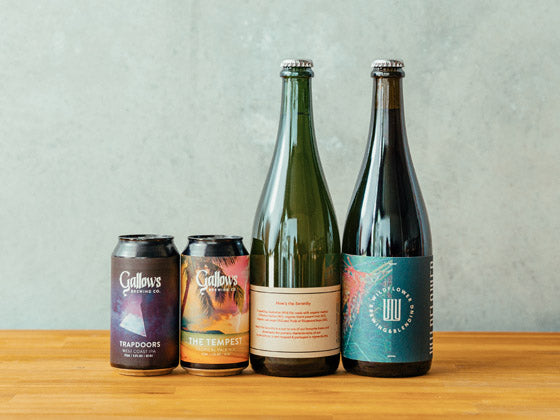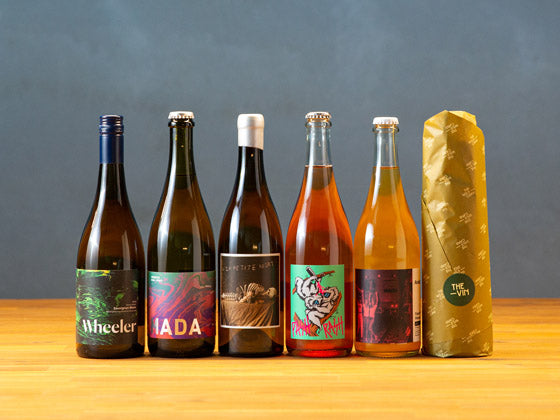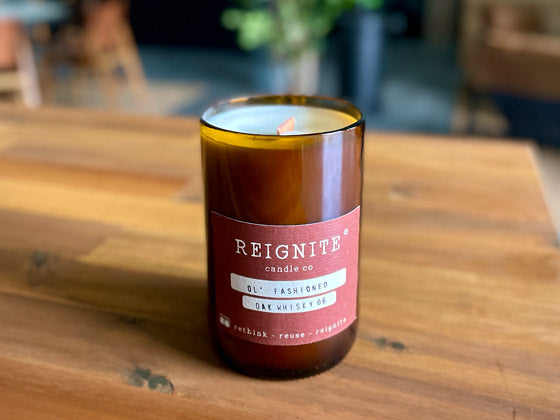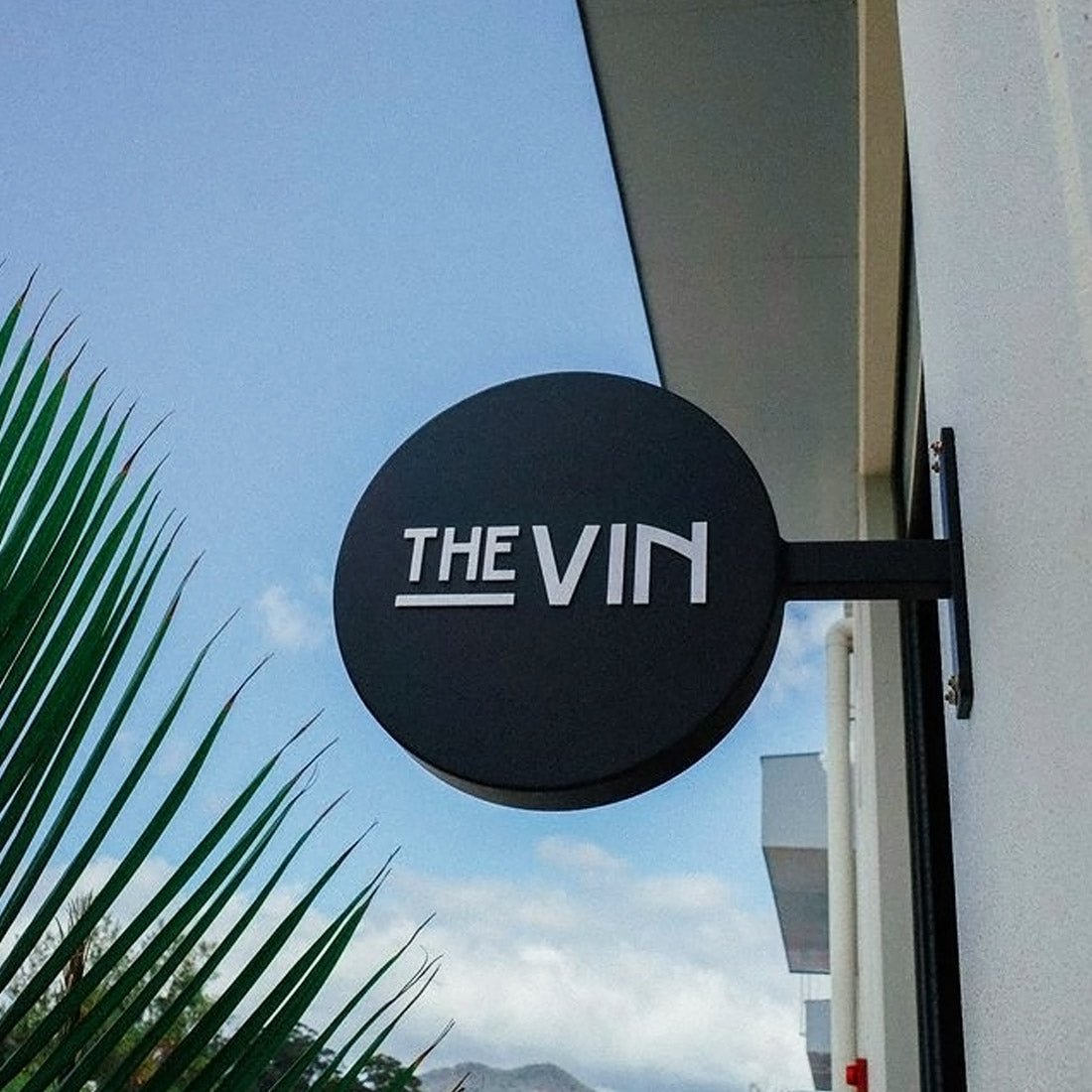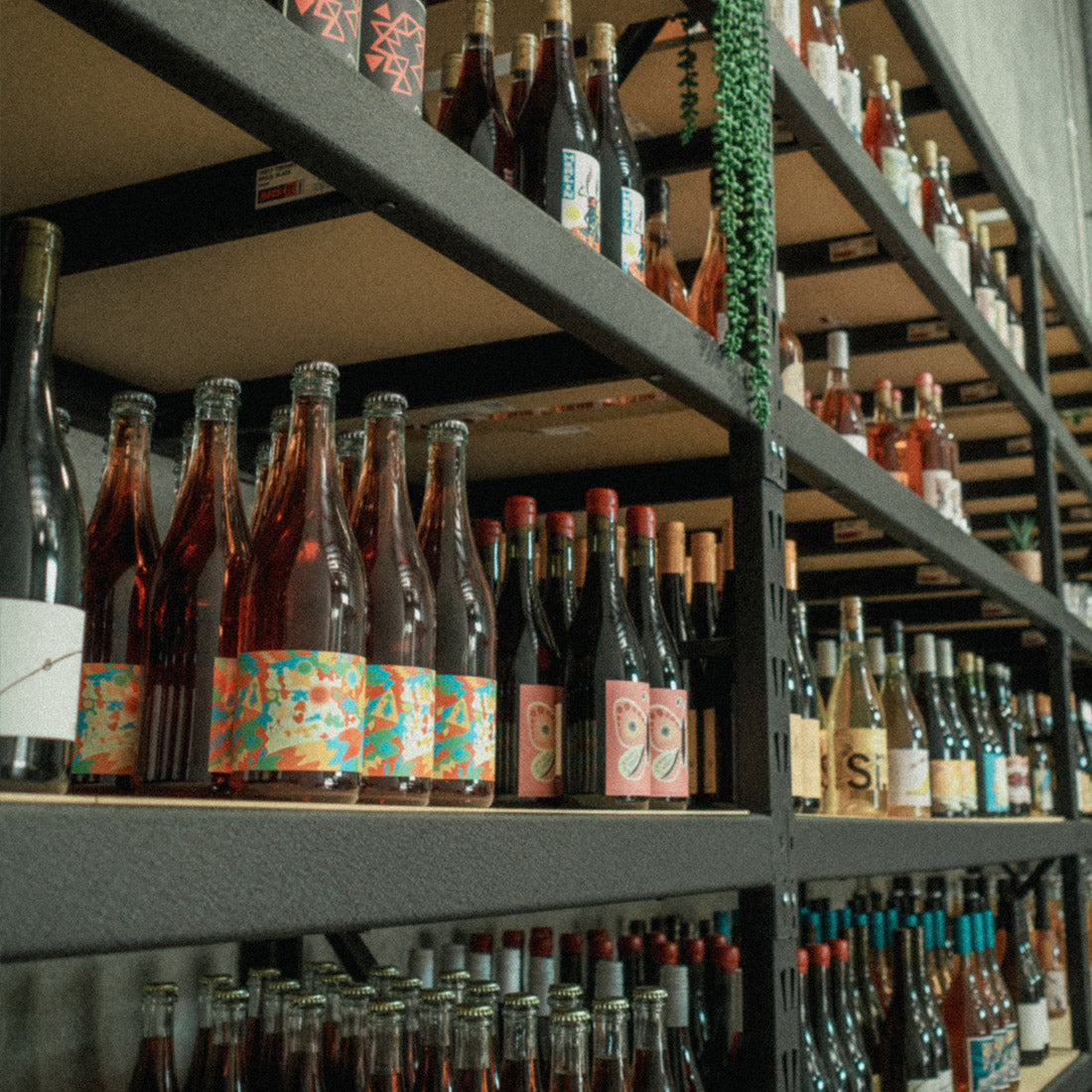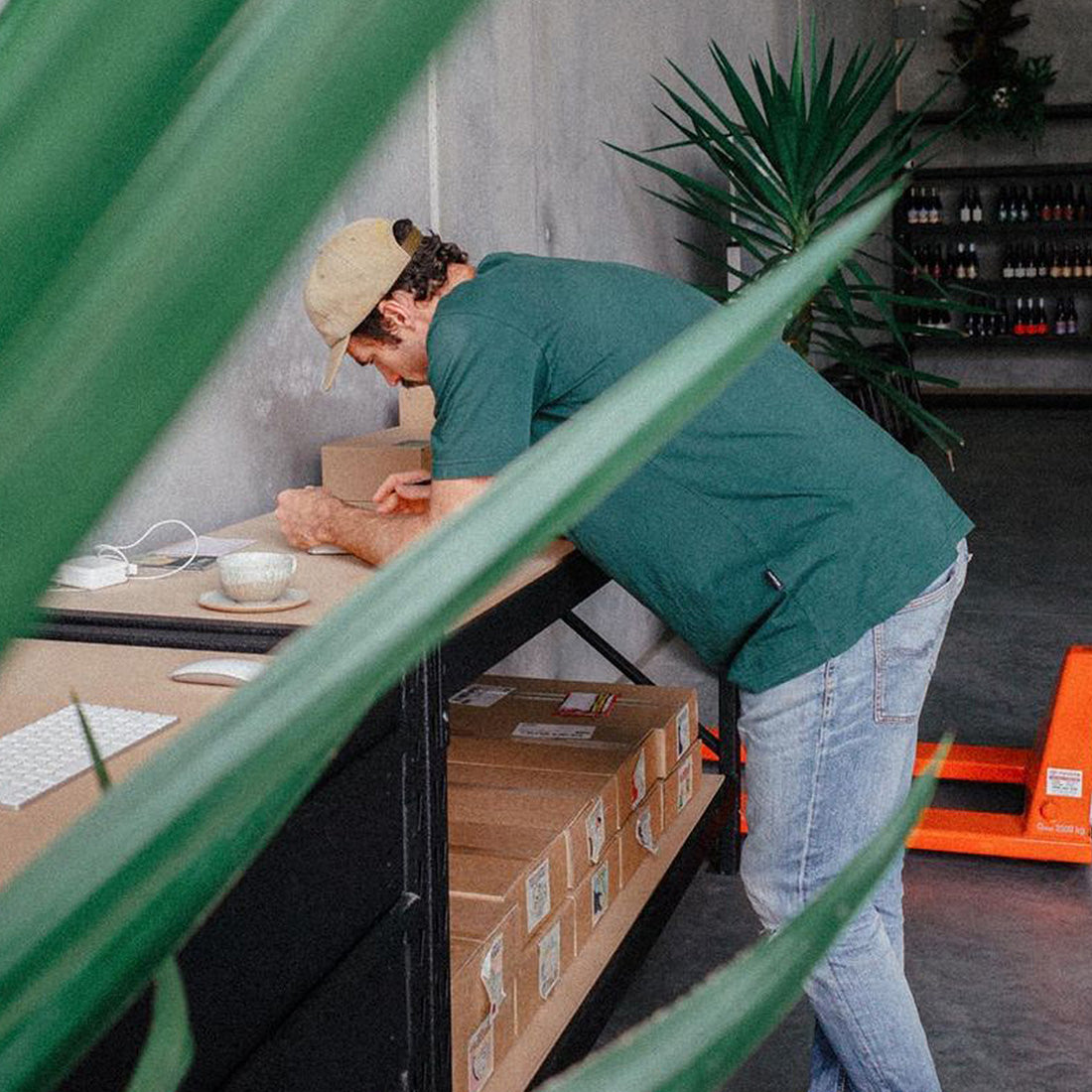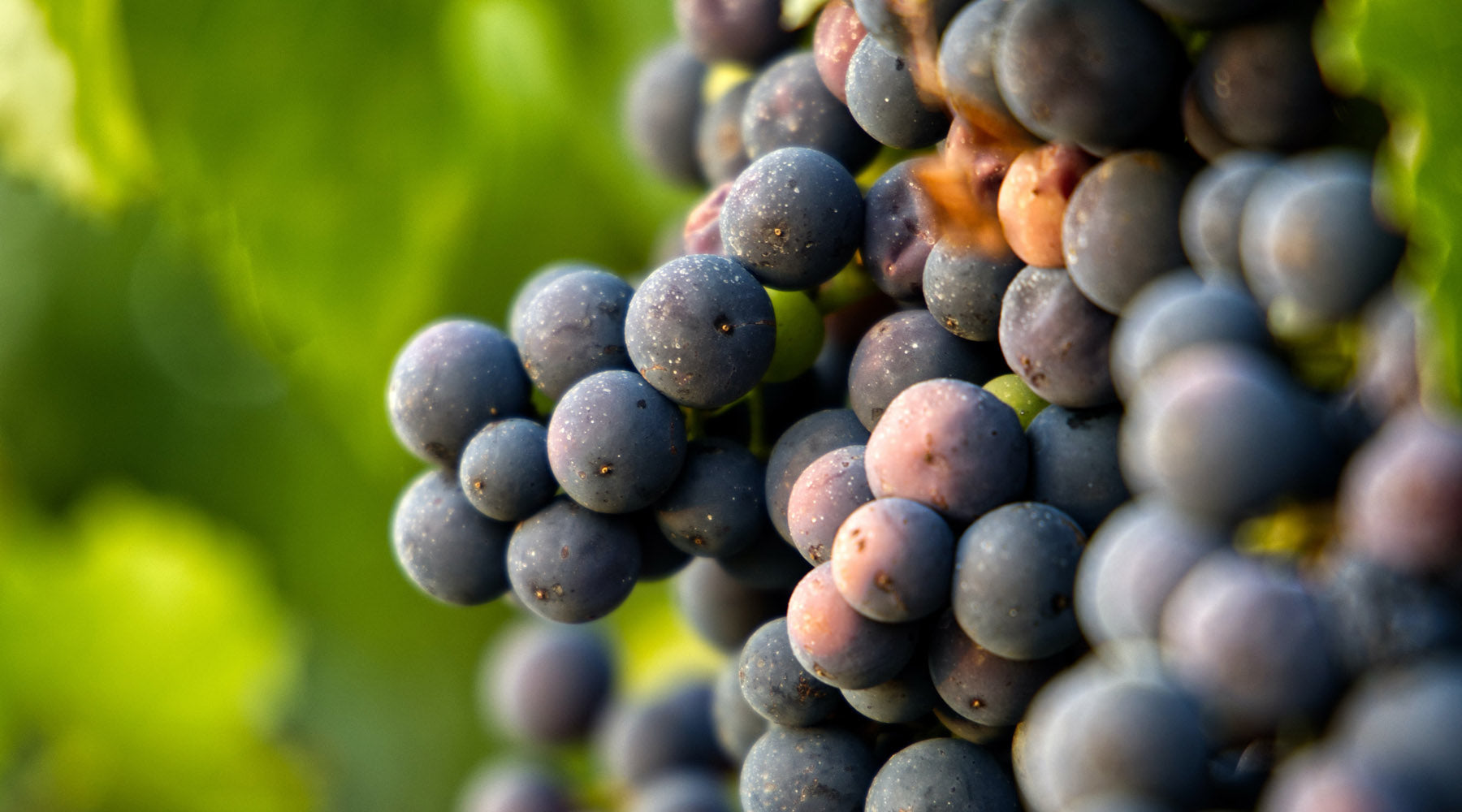We had the pleasure of chatting with Matt, one of the winemakers from Minimum Wines. Have a little read with one of their wines in hand.
Dan (The Vin):
What got you into winemaking (the family business) and specifically lo-fi/natural wines?
Matt:
We are Lentil, Matt & Mat. Lentil & Matt are partners in love and life and Minimum emerged from our Grown & Gathered (@grownandgathered) project focussed on education and awareness around organic, traditional living/old food ways in a modern world. We buy our grapes from a vineyard in Yorta Yorta Country 'owned' by my (Matt's) large family. They farm very conventionally, but somehow we convinced them to convert this block to organic/regenerative farming, promising to help with the transition and management, and buy the grapes if they did - and the rest is history. The conversion started in 2017 and Mat joined us in 2020 a few vintages in, initially helping with marketing, but he is now a co-owner, co-winemaker, co-everything. So we are a happy trio.
I grew up in a wine family in Taungurung Country, but they definitely did not have a lo-fi/natural mentality. Nonno farmed vines for sultanas in Ladji Ladji Country too, but this was also pretty conventional farming. However being half-Italian I have wine in my blood from a time well before synthetic controls came to be, and (having way more privilege to explore, experiment and learn than Nonno did as a post-war migrant) that 'old way' emerged in me naturally as I began to farm organic vegetables, fruits and flowers, which is when Lentil and I met and we began making wine together with friends back in 2014. For us the essence of winemaking has always been to ferment in the most graceful way, the very best 'real', wild grapes we could get our hands on. Starting Minimum was a whole new game given the volumes we were now setting out to make (compared to before, which was just for us and friends) but after a few vintages, we've really settled back to a rhythm that feels very similar to those early wines. It's just all about capturing the energy of the sunshine and the grapes, letting go of control, keeping things clean (that's the key graceful part - you can't honour the harvest if you let every yeast and bacteria under the sun crowd it out!) and going with the process. We discovered very early on that trying to control such a beautifully creative natural process, only takes away from the end result.
Dan: Why do you continue to make wine, I'm guessing it's not easy!?
Matt: Because wine is a part of us. It's a part of our culture. The same as we will continue to grow vegetables and flowers. The same as we will continue to ferment dill pickles. The same as we need each other, and the sun, and clean water. We will always make wine. Because, wine. Because it belongs in our home and on our table. How much wine we make each year will change. But there will always be wine to be made.
Dan: What is your winemaking approach, philosophy, process?
Matt: We farm and ferment like we live. Freely. With instinct and feeling. With grace and honour. And care. With all the incredible technology we have these days - all the ways to keep things clean, all the ways to process things efficiently - the need to use all the unnecessary conventional tools and chemicals of the commercial wine industry is: zero. We believe in healthy soil, leading to healthy vines, leading to healthy fruit, leading to a healthy ferment. And when a ferment is healthy, you will get incredible wine that is an honest translation and expression of all the parts that came before.
Dan: What part of the winemaking process do you love the most?
Matt: It is all one thing for me. From growing the grapes, to putting the label on the bottle, I love the process of creating bottles of wine to share with people and bring joy, or comfort, to bring people together around tables. But also, punching down with your whole arms until you have wine on your nose is pretty rad. And the first taste after malo. The first indication of the true spirit of that new wine that's joined our family. Love that.
Dan: How would you define/describe the types of wines you make?
Matt: Free. Clear. Juicy. Vibrant. Energetic. Full of love and genuine care.
Dan: What are some of the biggest challenges you experience?
Matt: The old industry guard. They hold a lot of keys when it comes to managing larger volumes and getting access to the efficient technologies of bottling lines and distribution. We have learned to counter this by doing almost everything ourselves. Holding power and maintaining a parallel industry that is full of bespoke, heart-filled makers is going to be the key to transitioning the entire industry (all modern industries really) away from the current contrived, economics-driven paradigm that dominates wine in Australia and in general is really bringing down the planet and all the non-human and human occupants that live on it. But it can be hard work countering a force like that. We make wine, but the philosophy that shapes that business is the same philosophy that shapes our lives: we need to be anti-colonial, anti-oppression, anti-commercial. We have learned that we can absolutely operate a business with heart and integrity, without compromising those values. We've learned that we have to.
Dan: Your personal favourite types of wine?
Matt: This is super mood driven. But above most right now: skinsy whites.
Dan: How long do you typically keep your clothes (thread bear or neat and new ;)?
Matt: Haha, love this. Both! There are two streams in my wardrobe. Life clothes, and work clothes. Once the life clothes are too worn, they become work clothes. They are usually work clothes until they fall apart haha.
Dan: Anything else you want to mention...
Matt: Just that we love what you are creating here. This is what wine culture needs more of. What human culture needs more of. Thank you.








